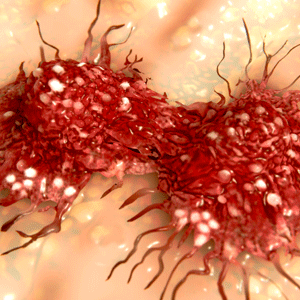
Scientists in the United States said they had created a tiny implant which, in mice for now, captures cancer cells spreading through the body.
Cells moving from the original cancer site to infect other organs in a stealthy process called metastasis are usually detected too late to save a patient's life.
Cancer cells hard to spot
The early detection of circulating tumour cells, or CTCs, in the bloodstream can speed up diagnosis and life-saving treatment.
Read: Treating cancer
But these wandering cancer cells travel in very small numbers, often for long periods of time, before settling in a new site, and are thus very hard to spot.
The study, published in the journal Nature Communication, suggests that capturing CTCs would prevent their spread and help halt disease progression.
"Animals receiving an implant had a significantly reduced burden of disease in their lungs relative to animals that did not have an implant," study co-author Lonnie Shea at Northwestern University in Illinois told AFP.
In experiments, Shea and a team built biodegradable disks about half-a-centimetre (0.2 inches) wide, and implanted two per mouse.
The implant which used immune cells as bait also contained a scanner to detect the presence of trapped cells.
"The combined systems can enable the early detection of metastatic disease," Shea said by email.
Read: Technology may hold the key to fighting cancer
"The initial benefit is detection catching the metastasis before it spreads widely throughout the body," he explained.
Colonising organs
"However... the opportunity to reduce burden (of cell spread) can potentially extend the period of time over which therapies may be effective."
As a bonus, the implant collected metastasised cancer cells for analysis, making it easier to identify the best treatment.
There was no reason to believe the results achieved in lab mice could not be replicated in humans, said Shea.
"The main idea of cells colonising organs is the same between mice and humans, and while some of the details may change, we think we can build that into the design of our implant."
Shea said he hoped clinical trials with human cancer sufferers could begin soon.
Read more:
Brachytherapy significantly improves survival rates for those with cervical cancer
Killer T-cell therapy shows promise against leukaemia
Scientists turn to aspirin to turbo-charge cancer immunotherapy
Image: Dividing cancer cells from iStock




 Publications
Publications
 Partners
Partners











